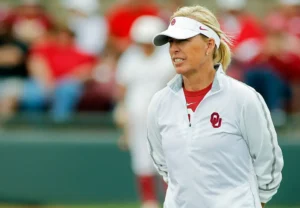
The Collingwood Football Club, one of Australia’s most prominent and historic Australian Football League (AFL) teams, is facing a lawsuit following allegations of racial discrimination. The claims, brought by a former employee, have reignited public scrutiny over the club’s handling of racial issues, despite its recent efforts to address such matters.
The plaintiff, whose identity has been withheld for legal reasons, alleges that they experienced systemic racism during their tenure at the club. According to court filings, the individual claims to have been subjected to repeated instances of racial vilification and a workplace culture that allowed discriminatory behavior to persist unchecked. The lawsuit seeks damages for emotional distress and loss of professional opportunities.
Allegations of a Toxic Workplace Culture
The allegations include instances where racist comments were allegedly made by colleagues and were either ignored or inadequately addressed by management. The plaintiff also claims that complaints raised about the discriminatory behavior were met with indifference, further perpetuating a hostile work environment.
This legal action has added another chapter to Collingwood’s long-standing struggles with racial issues. In 2021, the club commissioned an independent report, known as the “Do Better” report, following allegations of systemic racism raised by former player Heritier Lumumba. The report’s findings, which described the club’s history of racism as “collingwood’s darkest stain,” called for comprehensive reforms to improve diversity and inclusivity within the organization.
Collingwood’s Response
In a statement released in response to the lawsuit, the Collingwood Football Club expressed its commitment to fostering a safe and inclusive environment for all employees and players. “The club takes these allegations seriously and will fully cooperate with legal proceedings,” the statement read. “While we have made significant strides since the release of the Do Better report, we recognize there is still work to be done.”
Club officials also highlighted measures implemented since 2021, including the establishment of a diversity and inclusion committee, cultural sensitivity training for staff, and the appointment of an external advisor to monitor progress on racial equity initiatives. However, critics argue that these measures may not have gone far enough to address the deeply entrenched issues within the organization.
Public and AFL Reactions
The AFL has acknowledged the lawsuit and reiterated its zero-tolerance stance on racism. In a statement, the league emphasized the importance of creating a culture of respect and inclusivity across all clubs. “There is no place for racism in football, on or off the field,” the AFL’s statement declared.
Public reaction has been mixed. While some fans have praised the plaintiff for their courage in coming forward, others have expressed disappointment that Collingwood continues to grapple with allegations of racism despite its publicized reform efforts. Social media platforms have been abuzz with debates about whether the club’s leadership has done enough to effect meaningful change.
Legal Implications and Broader Impact
Legal experts suggest that the outcome of this case could set a significant precedent for how AFL clubs and other sporting organizations handle allegations of workplace discrimination. If the plaintiff’s claims are upheld, it could lead to increased scrutiny and a push for more rigorous accountability measures within the league.
This lawsuit also serves as a stark reminder of the broader challenges faced by Australian sports in addressing systemic racism. While individual clubs like Collingwood have undertaken initiatives to improve, the persistence of such allegations indicates that deeper, systemic changes are needed across the board.
As the legal proceedings unfold, all eyes will be on Collingwood’s leadership and how they navigate this latest crisis. For a club that has long prided itself on its storied history and loyal fan base, this case represents yet another test of its commitment to living up to the values it claims to uphold. Whether it will rise to the challenge remains to be seen.







